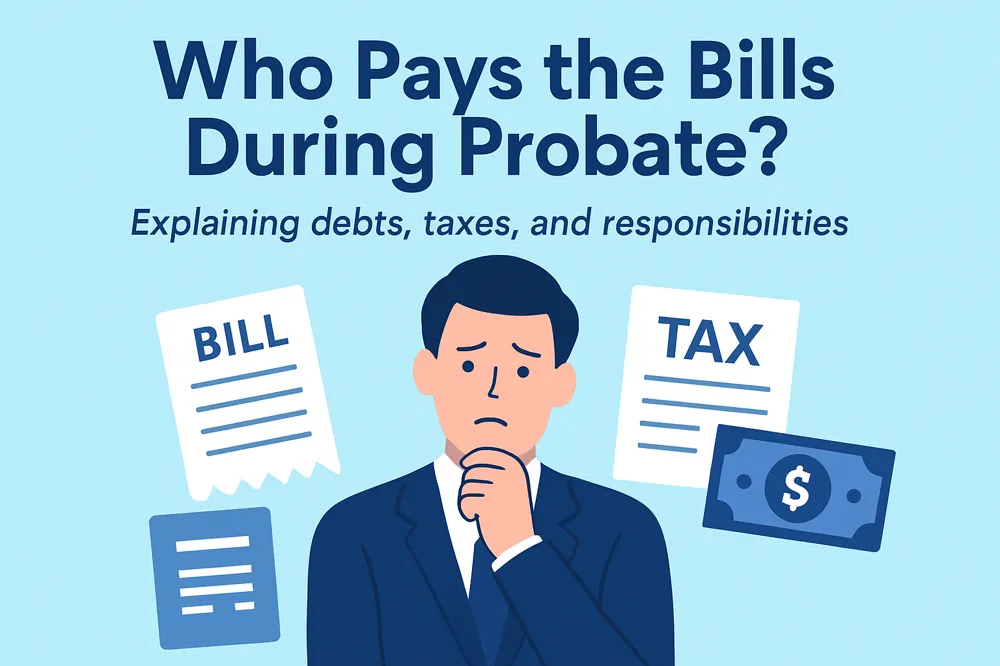Who Pays the Bills During Probate?
Explaining debts, taxes, and responsibilities in California probate.
Understanding Probate Expenses
When someone passes away, their estate doesn’t simply transfer to heirs immediately. The probate process ensures that debts, taxes, and financial obligations are settled before distribution. But who pays for these bills, and how is it handled?
Who Is Responsible for Paying Bills?
The responsibility typically falls on the executor (if there is a will) or the administrator (if there is no will). This person is appointed by the court and tasked with managing the estate, which includes paying ongoing bills and debts using estate funds.
- Mortgage, utilities, and insurance – must be maintained to protect estate assets.
- Outstanding debts and credit cards – creditors must be notified and valid claims paid.
- Funeral expenses – usually paid early from estate funds.
- Taxes – both income and estate taxes may apply depending on the situation.
Are Heirs Personally Liable?
In most cases, heirs are not personally responsible for the decedent’s debts. Payments are made directly from the estate. However, if heirs receive assets before debts and taxes are resolved, the court can require repayment to cover those obligations.
What If the Estate Runs Out of Money?
If the estate’s assets are insufficient to pay all bills and debts, California law sets a priority order. Certain expenses, like funeral costs, taxes, and secured debts, are paid first. Unsecured debts may go unpaid if funds are exhausted.
Key Takeaways
- Estate funds, not heirs, pay for debts and expenses during probate.
- The executor or administrator is responsible for managing these payments.
- If the estate cannot cover all debts, some creditors may not be paid in full.


